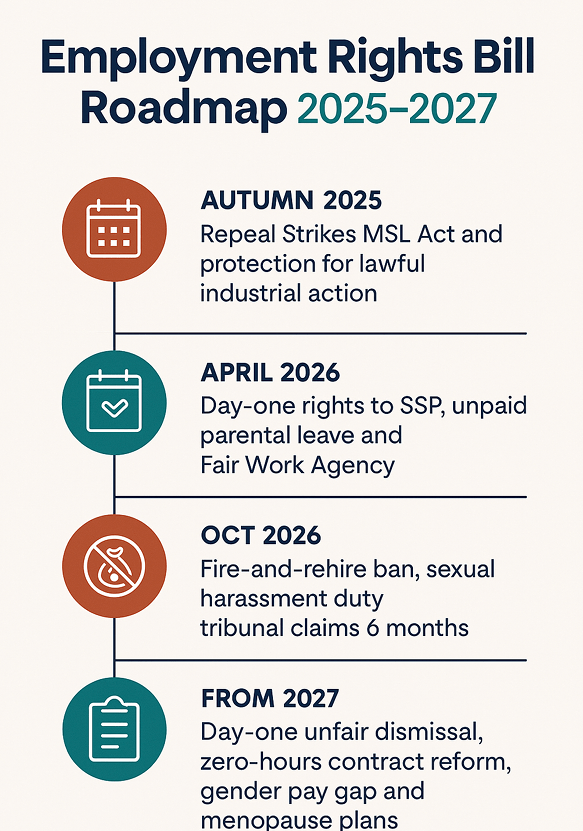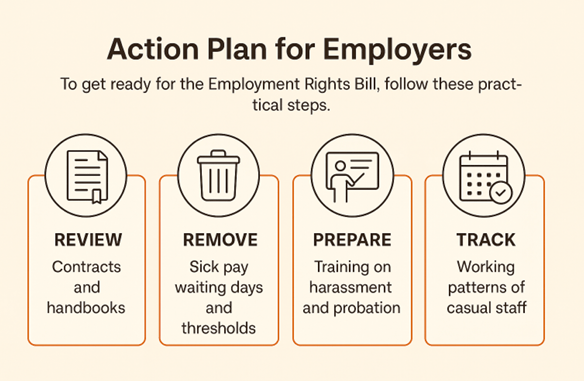The Employment Rights Bill is shaping up to be one of the most significant shifts in UK employment law in decades. Rolling out in phases from late 2025 to 2027, the changes will impact everything from sick pay and zero-hours contracts to dismissal rights and tribunal deadlines.
If you’re a small or medium-sized employer, it’s time to take notice. This guide breaks down what’s changing, when it’s happening, and what you should be doing now to stay compliant – and ahead of the curve.
Why This Bill Matters to SMEs
This isn’t just about updating a few policies. The Employment Rights Bill introduces day-one rights, stronger consultation duties, and new enforcement powers that will reshape how SMEs manage people. If you’re used to relying on probation periods or flexible hours without set commitments, you’ll need to rethink those approaches.
Staying proactive will help you avoid costly disputes, improve employee trust, and keep your business in line with the new legal framework.
📅 Key Dates & Timeline of Changes

✅ What This Means for Employers
The Employment Rights Bill will affect contracts, HR policies, payroll planning, and how your managers lead.
Here are the key areas to review:
- Contracts – Update templates to reflect new day-one rights and guaranteed-hours provisions
- HR policies – Revise sick pay, redundancy procedures, and anti-harassment frameworks
- Manager training – Focus on probation handling, documentation, and prevention of workplace harassment
- Workforce planning – Track casual worker hours and factor in potential shifts to guaranteed contracts
- Risk management – Prepare for more claims with longer tribunal timeframes and increased scrutiny
🛠️ Action Plan: Five Practical Steps You Can Take Now

Final Thoughts
The Employment Rights Bill roadmap is more than a legislative update – it’s a call to action for employers to build stronger, fairer, and more sustainable workplaces.
While many of the changes don’t kick in until 2026 or 2027, the smartest employers will start preparing now. You’ll reduce legal risk, improve employee confidence, and make sure your HR function is future-ready.
Sources
Ready to Stay Ahead of the Changes?
At Nexilis HR, we specialise in outsourced HR services that keep your business compliant, confident, and people-focused. From updating contracts and policies to training your managers and handling employee relations, we’ve got you covered.
✅ Fixed-fee support tailored to SMEs
✅ Advice aligned with the latest UK employment law
✅ Proactive risk management to avoid costly claims
✅ Rapid support when things go wrong
Don’t wait until the reforms arrive – let’s get your HR in order now.
